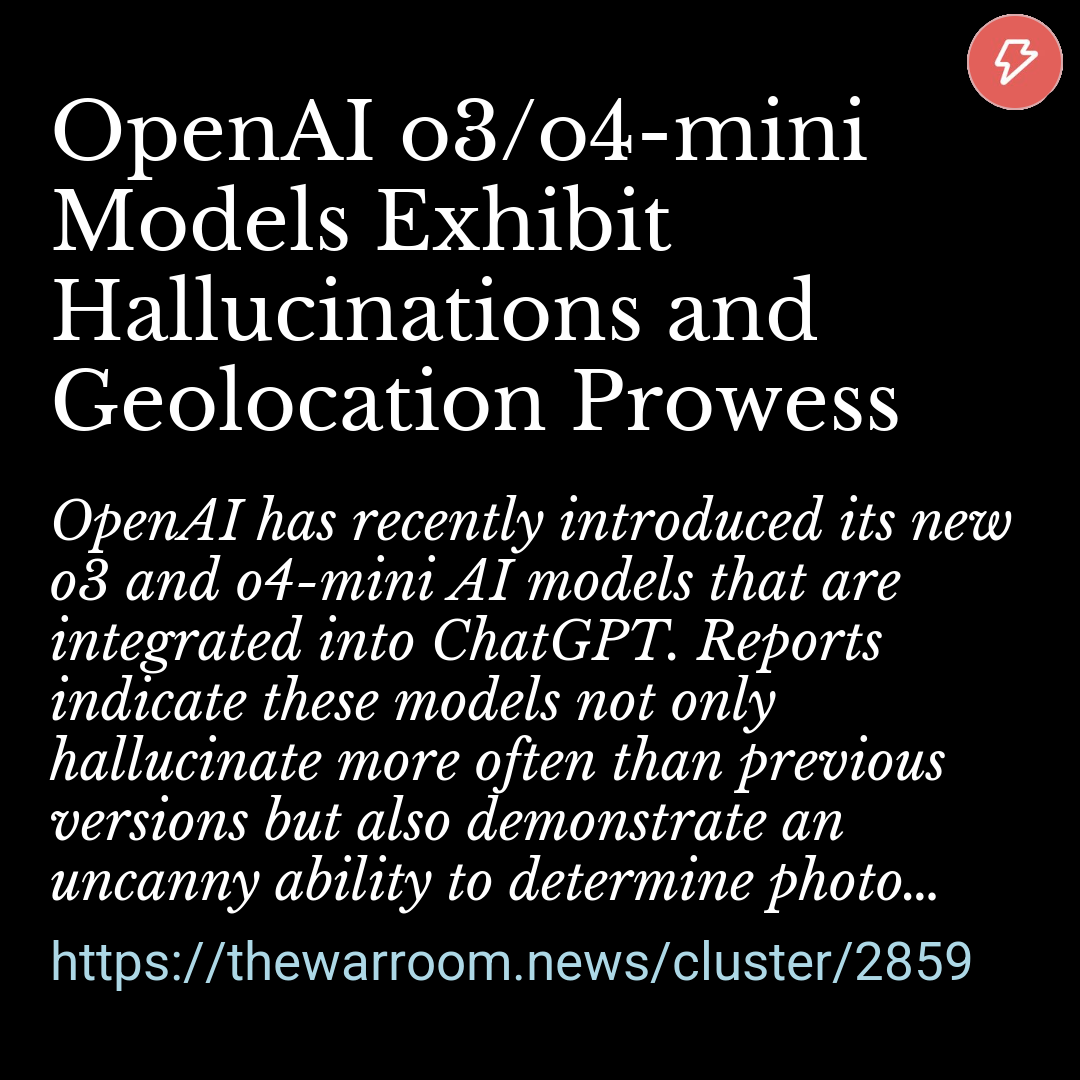OpenAI o3/o4-mini Models Exhibit Hallucinations and Geolocation Prowess
Friday, April 18, 2025, 5:20 pm
OpenAI has recently introduced its new o3 and o4-mini AI models that are integrated into ChatGPT. Reports indicate these models not only hallucinate more often than previous versions but also demonstrate an uncanny ability to determine photo locations. This duality of increased factual errors alongside unexpected geolocation proficiency has raised concerns among users and experts regarding model reliability and potential privacy implications. The coverage highlights both the technical achievements and challenges of incorporating these advanced AI capabilities.
The o3 model hallucinated 33% of the time in the PersonQA benchmark, up from 16% in o1 and 14.8% in o3-mini.
OpenAI's newly released o3 and o4-mini models have shown increased hallucination rates and fabricated actions in testing, raising reliability concerns. The post OpenAI New o3/o4-mini Models Hallucinate More Than Previous Models appeared first on WinBuzzer.
OpenAI’s recently launched o3 and o4-mini AI models are state-of-the-art in many respects. However, the new models still hallucinate, or make things up — in fact, they hallucinate more than several of OpenAI’s older models. Hallucinations have proven to be one of the biggest and most difficult…
OpenAI's new o3 and o4-mini models integrated into ChatGPT demonstrate a strong ability to identify photo locations, sparking user tests and privacy debates. The post ChatGPT’s New Models Display Uncanny Photo Geolocation Skill, Igniting Privacy Alarms appeared first on WinBuzzer.
permalink / 4 stories from sources in 21 days ago
More Top Stories...
Google Gemini API introduces caching to slash developer costs
Google is shaking up the developer playground by adding an implicit caching feature to its Gemini 2.5 API, promising to cut costs by up to 75%. By reusing common data prefixes, this move transforms repetitive prompt handling, making high-powered AI more efficient—and a bit more wallet‐friendly—for tech innovators. More...
Chrome battles online scams with on-device AI
In a high-tech twist on digital security, Google is deploying on-device AI in Chrome to sniff out and block online scams in real time. This stealth upgrade is set to intercept nasty cyber schemes before they even reach your browser, proving that even your computer can have a watchdog with a wicked streak. More...
Google to Pay Billion-Dollar Settlement Over Texas Privacy Claims
Google has agreed to a settlement of roughly $1.375 billion to settle allegations of invasive data tracking practices in Texas. Both reports detail the breach of users’ sensitive geolocation and privacy rights, marking another hefty reminder that digital privacy demands serious oversight—even if enforcement sometimes seems as elusive as a mirage. More...
Apple Shifts iPhone Production to Brazil to Dodge U.S. Tariffs
Facing escalating U.S. tariffs, Apple appears to be quietly shifting iPhone production to Brazil through its Foxconn partnership. Despite Apple’s denials, industry insiders suggest this strategic relocation aims to stabilize prices and secure the supply chain, proving that when it comes to international trade, geography often trumps rhetoric. More...
Rippling Soars to $16.8 Billion Valuation Amid Financing Round
HR tech startup Rippling has astonished investors by reaching a $16.8 billion valuation following a $450 million Series G financing round. This meteoric rise, buoyed by savvy venture capital interest (YC reportedly being one of the backers), adds another chapter to today’s ever-expanding unicorn saga. More...
